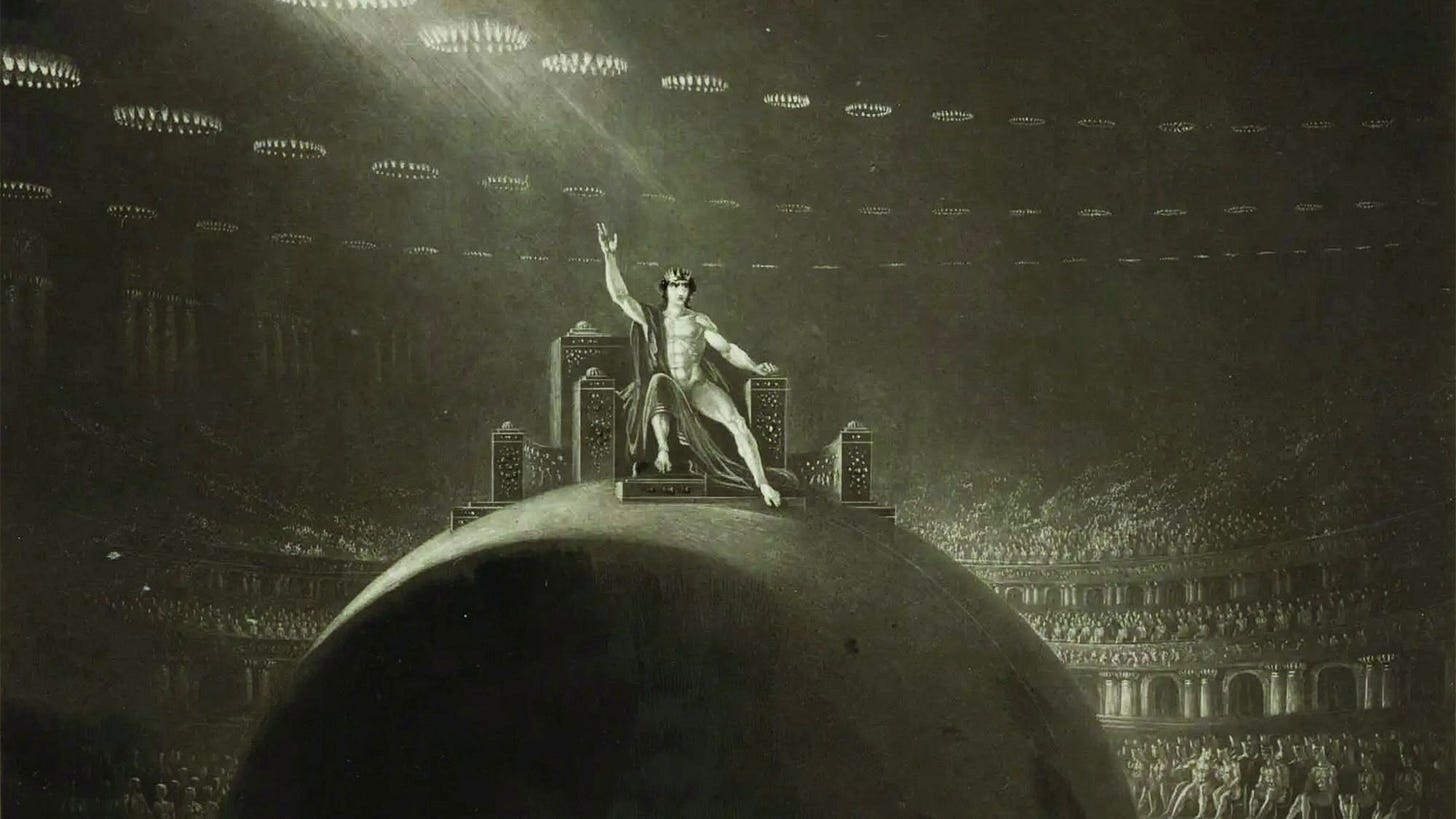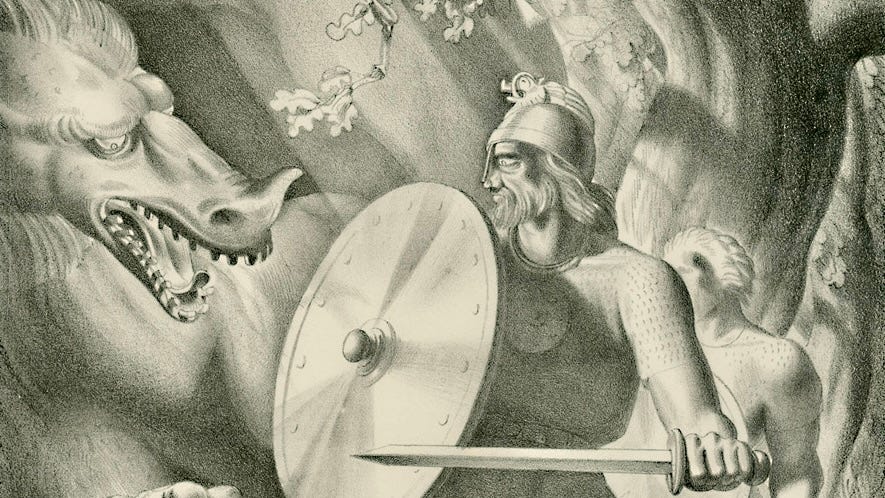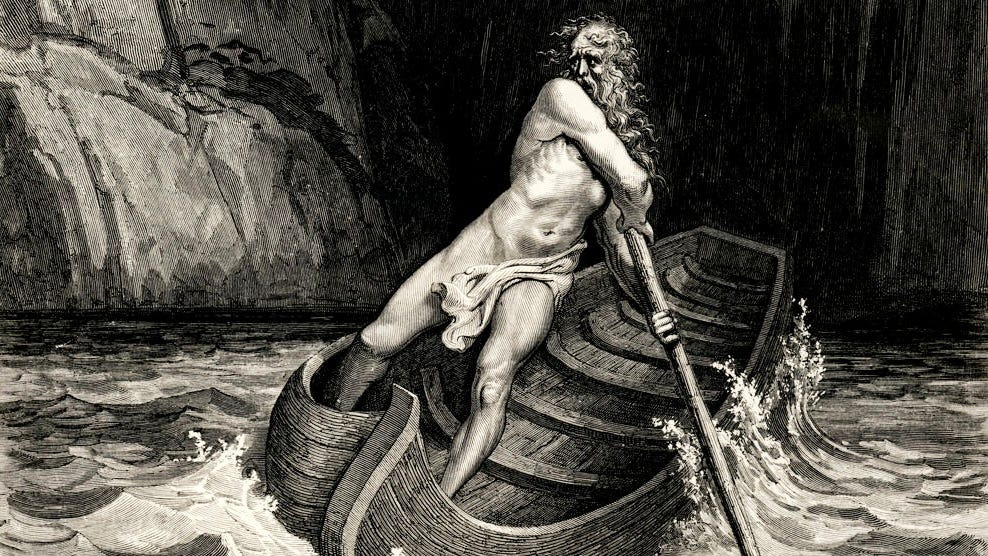Where to Start With Epic Poetry
5 epics everyone must read
Epic poetry is perhaps the greatest form of literature ever devised. Because just like regular novels, epic poems entertain and inspire by telling great stories — but also use rhyme, rhythm, cadence, allusion, alliteration, meter, and more to bring the tale to life.
Historically speaking, it used to be common to judge authors by their ability to pen beautiful poetry. It was one thing to write a book — but could you write an epic?
All across Europe, works like The Faerie Queene, Jerusalem Delivered, and Orlando Furioso shaped the art of an entire continent as they inspired the frescos and paintings that adorned parlors and palaces alike.
Epics were meant to captivate — to be told aloud around a fire, passed down through memory, and experienced in full dramatic force. But because of this, the genre might feel a bit distant to readers today.
So where’s the best place to start?
Today, we share the five most accessible epic poems. While accessible doesn’t necessarily mean an easy read, it does mean that there are plenty of resources out there to help you navigate and enjoy each one…
Reminder: you can support our mission and get tons of members-only content for a few dollars per month:
Full-length articles every Wednesday and Saturday
Members-only podcasts and exclusive interviews
The entire archive of great literature, art, and philosophy breakdowns
1. Paradise Lost
(John Milton, 1667)
Milton’s Paradise Lost is the most ambitious epic ever written in English — a poetic retelling of the Fall of Man that grapples with nothing less than the justice of God and the true nature of evil.
The poem opens in Hell, where Satan, freshly cast out of Heaven, rallies his followers with a speech of defiant pride. From there, the narrative expands to include the temptation of Adam and Eve, Satan’s rebellion and the war in Heaven, and the consequences of free will.
For as much time as the poem spends exploring the mindset of Satan, however, Adam and Eve are the actual protagonists. And although their fall and exile from Eden is tragic, Milton ends the poem with a glimmer of hope — a glimpse into salvation history and the reminder that even after sin, the human journey continues.
Paradise Lost is written in blank verse iambic pentameter. The syntax of Milton’s sentences can be a bit difficult to adjust to at first, but it does get easier to follow the more time you spend with it. If you decide to give it a read, be sure to pick up a good annotated version of the text.
2. Beowulf
(Unknown author, circa 700–1000 AD)
Beowulf was one of the works that most inspired J.R.R. Tolkien — and with good reason.
It begins with a “shadow-walker” who haunts the mead-hall of Heorot, and ends with an ill-fated duel against a dragon. Three major battles serve to explore themes of heroism, sacrifice, and the battle against evil, and each is highly symbolic. In Tolkien’s words:
The monsters are symbols of the inevitable hostility of the world itself to mortal men…they do not only bring physical ruin but spiritual despair.
Ultimately, the Beowulf epic is less about triumph, and more about the virtue of resilience. The hero’s battles are not primarily about winning, but about facing evil head-on, even in the face of certain defeat. This idea, Tolkien argued, is what gives the poem its profound moral weight.
Beowulf is the shortest epic on this list, but that doesn’t make it any less profound. If you want to read it for the first time, we suggest you start with the translation by Seamus Heaney.
3. The Iliad
(Homer, 8th century BC)
The Iliad is the war story that defines all war stories. Set in the final weeks of the Trojan War, it tells the story of Achilles, the Greeks’ most fearsome warrior, and the rage that drives him to withdraw from battle after a personal insult.
What unfolds is a profound reflection on the nature of war, grief, and glory, as well as both the terrible and “terribly beautiful" aspects of human violence.
But far from being a merciless battle saga, the Iliad is filled with humanity: old men weeping for lost sons, warriors hesitating before they strike, and enemies treating one another with dignity in the shadow of death. Even in a world defined by violence, intense moments of human understanding and compassion still shine through.
The true value of reading the Iliad lies not in discovering how the plot unfolds, but in reflecting on the depth of its characters — especially the figures of Hector and Achilles. You can’t go wrong with Homer, and his Iliad is a powerful introduction to the emotional depth and poetic force of the epic tradition.
4. The Odyssey
(Homer, 8th century BC)
If the Iliad is all about war, the Odyssey is about survival after it.
The poem follows Odysseus, the craftiest of the Greek heroes, on his ten-year journey home after the fall of Troy. Along the way, he faces angry gods, seductive witches, one-eyed giants, and the threat of losing himself entirely.
But at its heart, the Odyssey is about man’s search for meaning — both where that meaning is found, and where it’s not. The eponymous hero is a deeply human character, and his swashbuckling journey across the Mediterranean reveals his flaws just as it reveals his virtues. You learn just as much about meaning through his failures as you do through his triumphs.
In many ways, the Odyssey is the epic of the everyday man — the one who doesn’t win through brute strength, but through patience, cunning, and sheer determination to get home. While it technically takes place after the events of the Iliad, it can nonetheless be read as a standalone work, and it offers another great entry point into the world of epic poetry.
5. The Divine Comedy
(Dante Alighieri, 1320)
Dante’s Divine Comedy begins with a man lost in the woods, who soon finds himself taken on a guided tour of the afterlife. With the Roman poet Virgil as his companion, Dante the pilgrim travels through the torments of Hell, the trials of Purgatory, and the joys of Heaven.
It’s an epic about the soul’s journey with God — and it’s unlike any other.
Despite its daunting reputation, Dante’s Comedy is surprisingly readable in a good modern translation (we recommend Esolen or Mandelbaum). The imagery is unforgettable, the architecture of the afterlife is thrilling in its detail, and the psychological and spiritual insights Dante shares along the way are profound.
But ultimately, Dante’s journey is one of transformation — and not just for him, but for the reader. His descent to Hell and ascent to Heaven is meant to instruct you in your own journey, and is designed to be read like the Bible.
Because for all of Dante’s political musings along the way, his Comedy is predominantly about morality, justice, and the soul’s path to God. Few works of literature, if any, can top it.
Thank you for reading!
Remember, you can support us and get members-only content every week: great literature, art, and philosophy breakdowns.
Paid readers can access our *entire* archive of premium articles right here.
This Saturday, we look at the cycles of human civilization — how cultures seem to follow the same patterns, and what, over 100 years ago, one historian predicted the 21st century would bring…









Gilgamesh is my favorite place to get people started with epics. Especially for men. Especially for men who aren’t used to reading. It’s a great buddy tale, and has all the elements of an epic: friendship, adventure, struggles between gods and fate, a descent into the realm of the dead, etc.
Recommending the Táin Bó Cúailnge from Ireland.